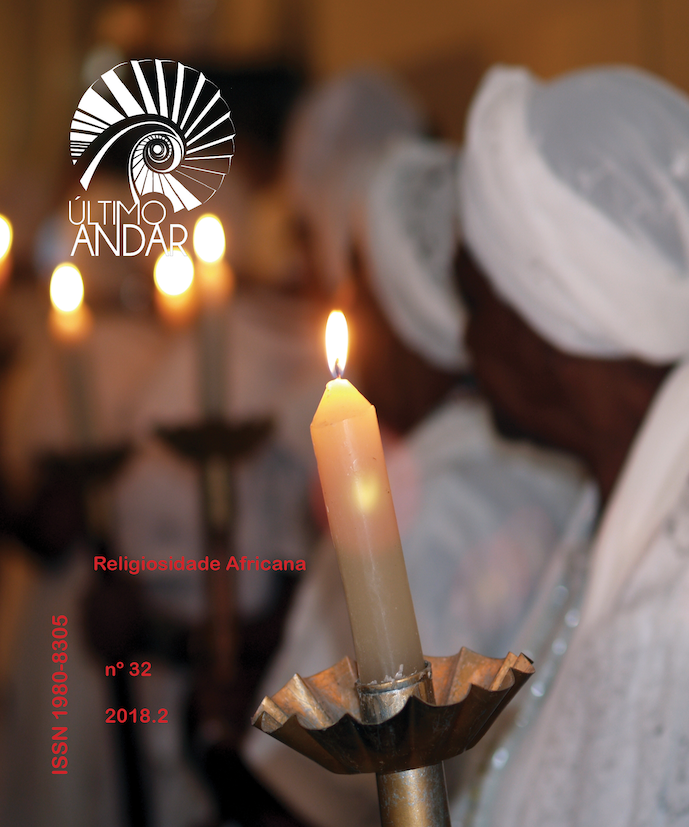TECHNÉ, TECHNOLOGY AND HEIDEGGER’S CRITICISM OF THE METAPHYSICAL GOD
DOI:
https://doi.org/10.23925/1980-8305.2018i2p102-110Keywords:
technology, God, post-metaphysics, Martin Heidegger.Abstract
One of the main concerns of the so-called Heidegger’s later philosophy rests upon modern technology and its instauration as the ‘consummation’ of metaphysics, the end of an historical process of mensuration and grasping of Being. Although already present in his seminal “Being and Time”, it is in the conference “The Question Concerning Technology” that the German philosopher builds the concept of technology beyond an instrumental and dispositive-oriented approach. For him, technology is the mode in which beings are disclosed as existing entities for the human being in contemporaneity, as passible of production, problematization, calculation and reproducibility. Heidegger points to this thinking as being the consummation of a history (Seingeschichte) of continuous apprehension of Being’s disclosure ignited with the Greeks through Plato. Departing from Heidegger’s destruction of metaphysics and his criticism of its modern expression, technology, this paper seeks to delineate a criticism of theology as this field developed itself within metaphysics and appears at the modern technology era, building upon heideggerian reflections over the mentioned texts and other works of his. This way, this paper wants to contribute to a post-metaphysical theology and understanding of God. The analysis also covers a significant range of literature review on heideggerian philosophy readers.
References
BISHOP, J. Transhumanism, Metaphysics and the Posthuman God. Journal of Medicine and Philosophy. 35(6), p. 700-720, 2010.
FELINTO, E. A Religião das Máquinas: Ensaios sobre o Imaginário da Cibercultura. Porto Alegre: Sulina, 2005.
GORZ, A. O imaterial: conhecimento, valor e capital. São Paulo: Annablume, 2005.
HEIDEGGER, M. Identity and Difference. New York: Harper & Row, 1969.
__________. Introduction to Metaphysics. New Haven: Yale University Press, 2000.
__________. Ser e Tempo. Petrópolis: Editora Vozes, 2005.
__________. A Questão da Técnica. Scientiae Studia. 5(3), p. 375-398, 2007.
__________. The Provenance of Art and the Destination of Thought. Journal of the British Society for Phenomenology. 44(2), p. 119-128, 2013.
MICKLE, E. Téchne y técnica, ousía y materia. Hypnos, 3(4), p. 18-27, 1998.
SEUBOULD, G. Heideggers Analyse der neuzeitlichen Technik. Friburgo: Alber, 1986.
SILVA, G.C. Elementos para uma crítica da noção cibernética da comunicação: um estudo sobre as premissas cibernéticas da comunicação à luz do avanço da inteligência artificial. Monografia, Centro Universitário Adventista de São Paulo, 2016.
THOMSON, I. Ontotheology? Understanding Heidegger’s Destruktion of Metaphysics. International Journal of Philosophical Studies. 8(3), p. 297-327, 2000.
__________. Heidegger on Ontotheology: technology and the politics of education. New York: Cambridge University Press, 2005.
TOMAZ, T. Alteridade e Tecnologia: Implicações da Fenomenologia de Martin Heidegger, 2016. In: https://www.researchgate.net/publication/324311823_Alteridade_e_Tecnologia_Implicacoes_da_Fenomenologia_de_Martin_Heidegger. Acesso em agosto de 2018.
_______. A Máquina como Outro comunicativo: crítica da concepção cibernética à luz da fenomenologia de Heidegger. Tese de Doutorado, Escola de Comunicação e Artes – Universidade de São Paulo, 2017.
Downloads
Published
How to Cite
Issue
Section
License
The Authors maintain the copyright and grant the journal the right to first publication, with the work simultaneously licensed under the Creative Commons Attribution License that allows the sharing of the work with acknowledgment of authorship and initial publication in this Journal.
Authors are authorized to assume additional contracts separately, for non-exclusive distribution of the version of the work published in this journal (eg, publishing in institutional repository or as a book chapter), with acknowledgment of authorship and initial publication in this journal.
Authors are allowed and encouraged to publish and distribute their work online (eg in institutional repositories or on their personal page) at any point before or during the editorial process, as this can generate productive changes, as well as increase impact and citation of the published work.


